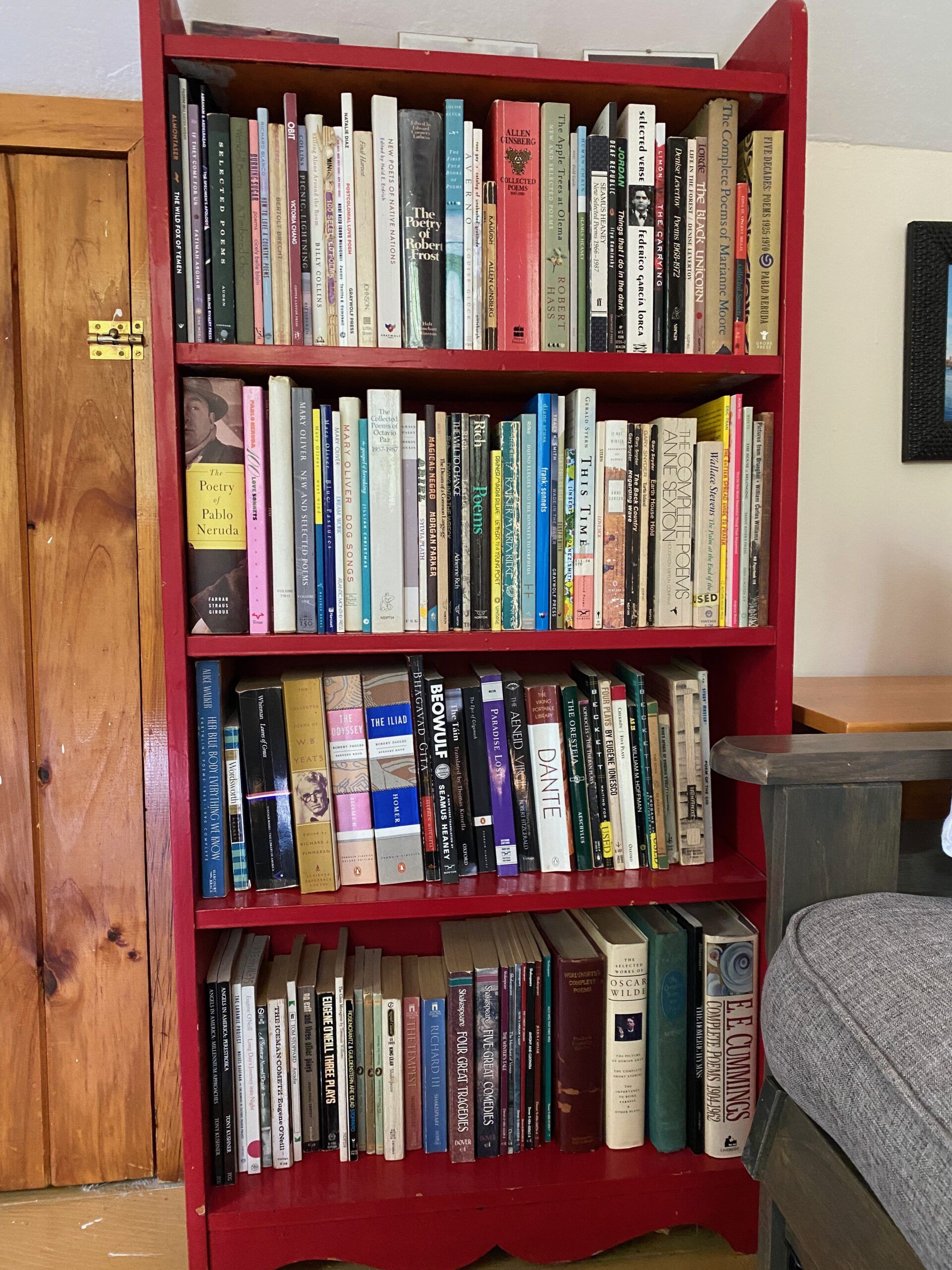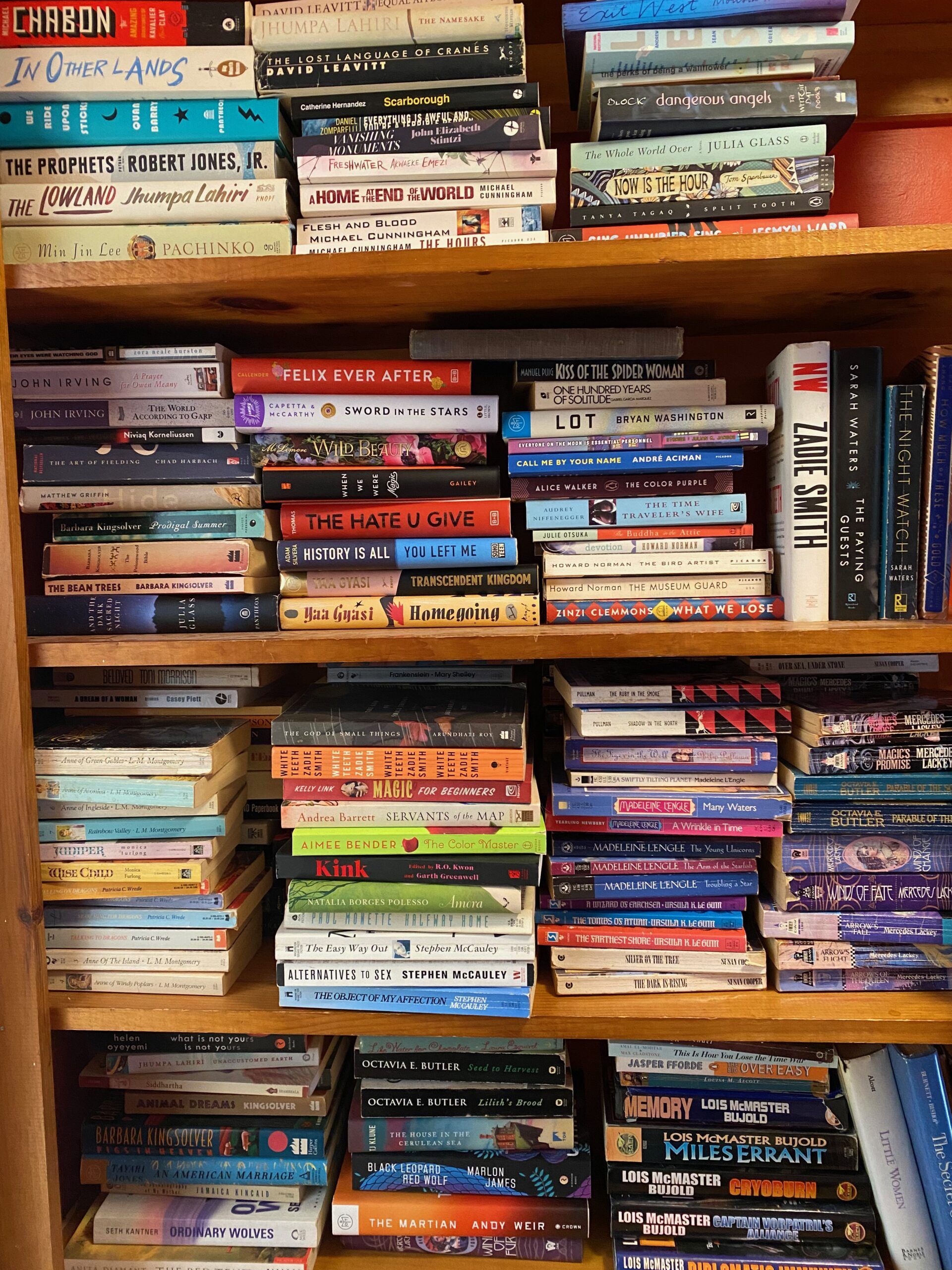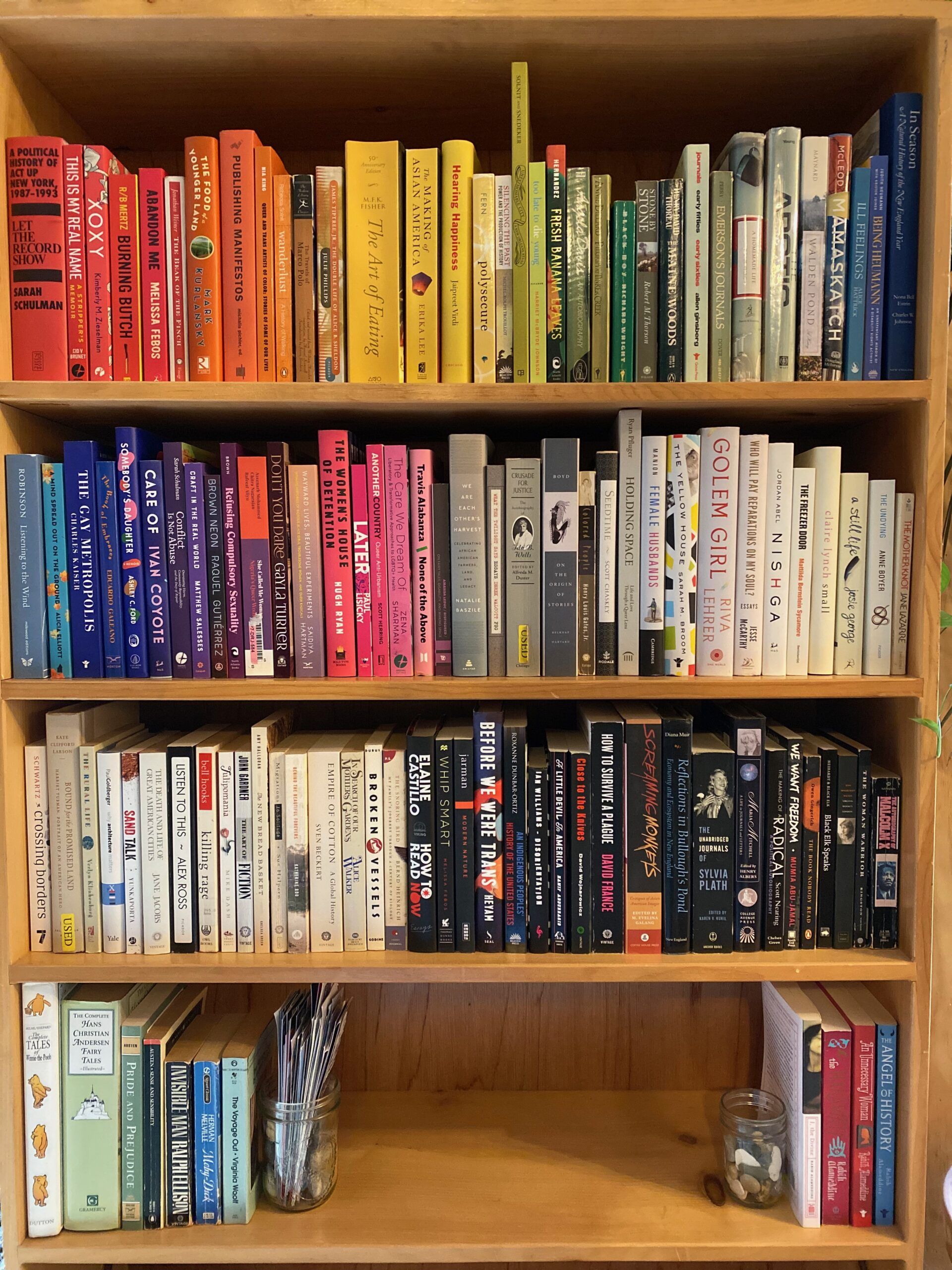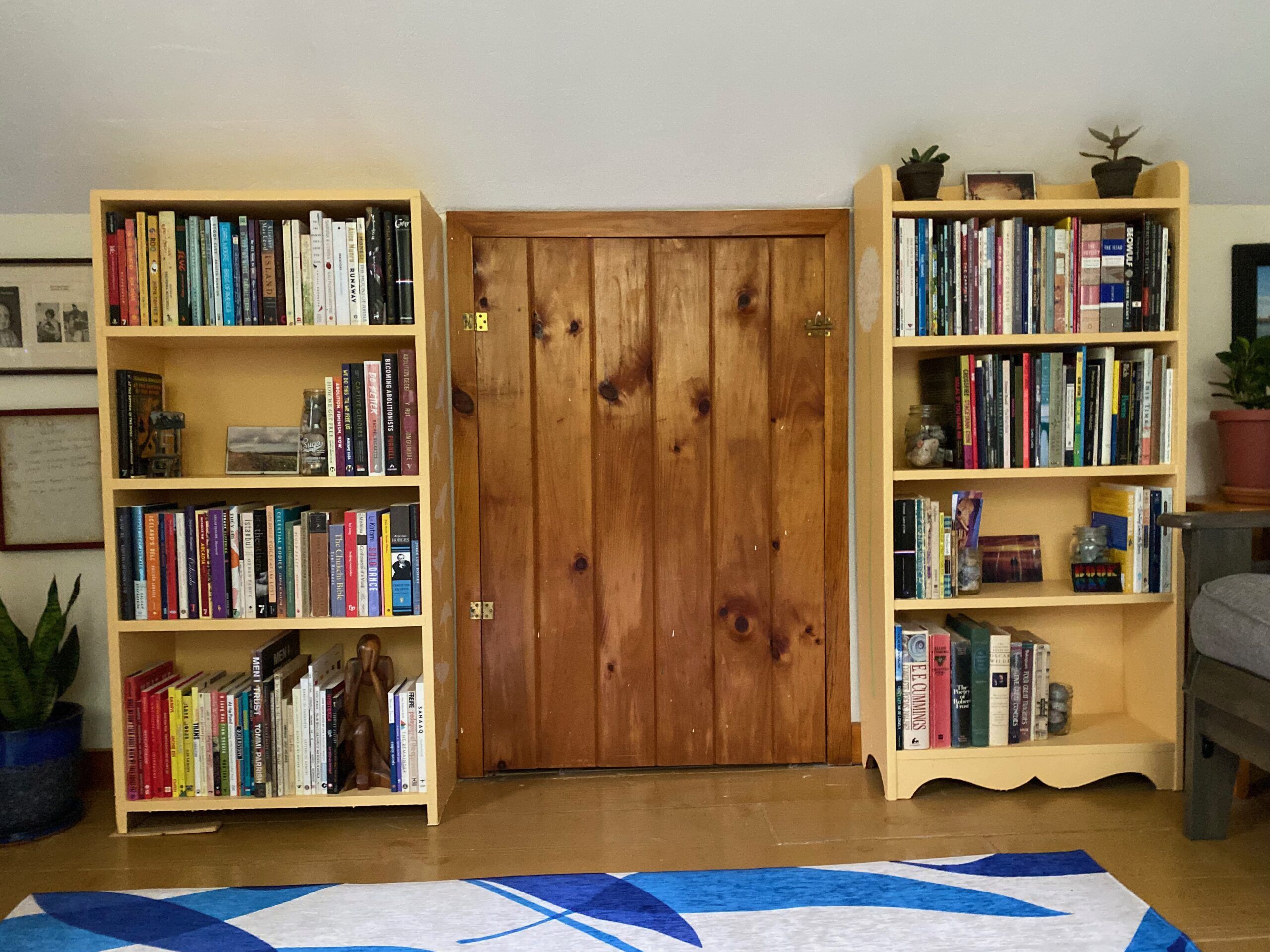I have ten bookshelves of varying sizes in my house, and I went through the same process for each one. I emptied each shelf and went through the books, one at at time. I held each book in my hands, determining whether I wanted to keep it or not. In some cases, it was easy — books I’ve read and love, books I am excited to read, books that hold personal meaning for me. There were also a lot of books I knew I wanted to give away — ones I’ve been carting around with me since high school that I no longer have any interest in reading. It was a joy to pack them all up. I felt lighter immediately.
What I wasn’t expecting was the dozens and dozens of books that did not fall easily into one of these two categories. This revelation — that I owned hundreds of books I wasn’t sure if I wanted or not — led me to the true gift of this massive project: I slowed way down.
I’ve weeded my books before. The last time I moved, I brought several overflowing boxes to my local used bookstore. But always in the past, I’ve sorted my books by instinct and moved on. I’d never taken the time to actually sit with each book, to study it, to flip through its pages and read a few paragraphs, to do some online research. I’d never bothered to ask myself any questions beyond: “Might I want to read this one day?” There are a lot of books I might want to read one day. And I’m a book lover, so I choose to live in denial and pretend I’ll have time to read them all. This question was not going to cut it.
This project took more than a month. After work, I’d make myself a cup of tea and sit down in front of the bookshelf I was working on. I let all the voices from the outside world go quiet. I wasn’t concerned with what I was supposed to want to read. I wasn’t thinking about the books everyone was talking about on social media or all the new releases clamoring for attention. I wasn’t interested in what books I used to love or what books I might one day love. I was only interested in the book in my hands and what it had to say to me. I gave each book the kind of thoughtful attention that leads to delightful surprises.
I’d initially put my copy of The Scarlet Letter in the no pile, but I kept coming back to it. I didn’t want to let go of it. I don’t read that many books by cis het white men anymore. It’s not even a conscious choice; it’s just that the vast majority of them don’t interested me. But for some reason, this book intrigued me. I hadn’t thought about it in years. Will I read it? Honestly, I don’t know, but I gave myself permission to want to read it.
As I was entering the details of my copy of Gilgamesh into my online catalog, I became curious about other translations. Was the one I had the one I wanted? I’d only ever read the one, and suddenly I was hungry for others. I spent at least an hour researching them, and came up with a mini Gilgamesh syllabus: a few translations, a few retellings, and a nonfiction book, Gilgamesh: The Life of a Poem. I’ve always loved Gilgamesh, but I hadn’t thought about it in years. Now I have plans for a winter project to read all of these translations. I am so excited about it. My life now is full of reading for reviews, for my newsletter, for projects I’m working on. All of this is wonderful. But it’s become easy for me to lose sight of the fact that I’m in charge of my reading life. If I want to spend a few weeks reading five different translations of an ancient poem, I can.
Cataloging my books has led me, gently, back to myself. I found a copy of In Season: A Natural History of the New England Year — a big, beautiful coffee table-style book my mom gave me ages ago. It was stashed on a shelf full of reference books I never look at. I picked it up, flipped through its pages, read the introduction, and was immediately moved by it. So I put it on my newly-sorted self of unread nonfiction, where I’ll see it. I might read a chapter a month, slowly, throughout all of 2023. I didn’t even know I had it.
I could go on forever. As part of the process, I created a shelf of my most beloved books. Looking at it make me extraordinary happily, but it also serves as a reminder that I want to reread many of these books (How to Write an Autobiographical Novel, All This Could Be Different) and I can, if I want! I’ve been wanting to read Toni Morrison’s entire catalog. Now that I’ve cataloged my books, I know exactly which ones I own. At a used book sale a few weeks ago, I pulled my catalog up on my phone and bought two I haven’t read and don’t own: Jazz and Paradise. Already my catalog has become a tool that’s helping me be the kind of reader I want to be.
In November, I read two books I’ve been meaning to read for ages: The President and The Frog and Edinburg. They were both spectacular. I might have read them anyway, if I hadn’t taken the time to sort and catalog and sit with my books, but I might not have. The sorting slowed me way down. That’s the lesson I’m taking with me into 2023: to sit with each book that comes into my life, to give it my full attention, and to deliberately choose how and when I want to engage with it.



